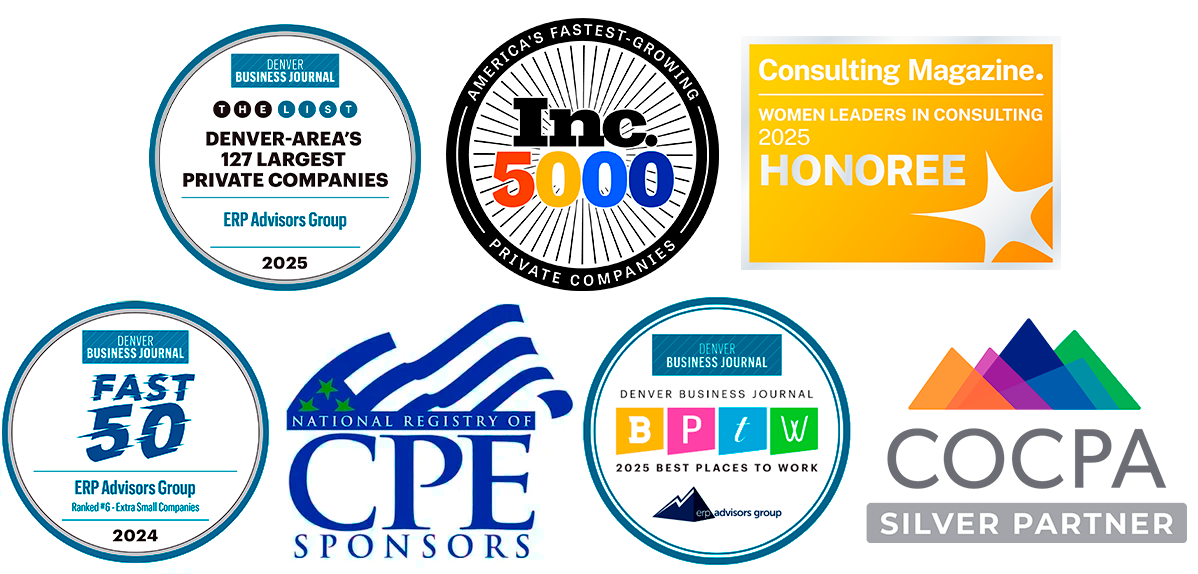
If you're considering an ERP change, you have probably heard the buzz around the importance of having a “technology platform strategy.” But what exactly does that mean? And what should you be looking for? These questions are more essential than ever when it comes to selecting the right ERP for your business.
How the Right Technology Platform Can Help Your Business Scale
If you're considering an ERP change, you have probably heard the buzz around the importance of having a “technology platform strategy.” But what exactly does that mean? And what should you be looking for? These questions are more essential than ever when it comes to selecting the right ERP for your business.
On this episode of The ERP Advisor, Shawn Windle, EAG’s founder and ERP expert, discusses why businesses need to consider their technology platform strategy if they want to continue achieving substantial growth.
What is a Technology Platform and Why Does It Matter?
ERP platform is a term often used generally to refer to a single solution or product. When we say ERP platform, we are referring to the technological foundation of the organization. This is the software that runs the whole business or organization and encompasses aspects such as data layer of the ERP, integrations, as well as the infrastructure for the solution.
In recent years, it has become even more crucial to upgrade to a more modern technology platform. With further value being found in new avenues, especially in data structure and usage, the need for a more advanced technology platform has become imminent. An outdated platform that is unable to handle integrations or connect data sufficiently will quickly cause your organization to fall behind and make it difficult to compete with the rest of your industry.
In order to get the most out of your software, you must first define what a technology platform means for your organization and the real scope of those efforts. A proposed change to your “software platform” may lead to confusion and dissatisfaction from your team if intentions and expectations are not made clear, which can lead to further change management risks. Before going to market to search for a new ERP platform, make sure everyone on your project team is on the same page. This means determining which parts of the business will be impacted by the change and what you want to accomplish.
Shifting Markets
The software market is constantly shifting and evolving as new technology emerges and advances. This was evident at the turn of the century when technology platforms saw a major shift in how they were structured.
Single Solution to Cloud/Hybrid Models
Prior to this shift, enterprise software was almost always seen in single solution deployments. Your single system would handle all of the necessary operational functions for your organization. This allowed for simple management of your technology stack. However, as technology’s capabilities expanded, new niche solutions began to reach the market, such as customer relationship management (CRM) or human resources software. These solutions bolstered businesses’ platforms, no longer maintaining the standard of running everything on a single solution.
Cloud Platform/Hybrid Model
In the modern era of software, cloud deployments have changed the architecture of enterprise software, expanding its capabilities. Now, businesses have the option to integrate and connect more niche applications. Advancements have allowed for more specialized functionality and business development beyond what was seen in the era of single solution platforms.
As software capabilities expand each year, we are also seeing more complex business structures and operations, with organizations branching into new industries or developing new business lines. For example, if a manufacturing company were to expand their business and add a field services branch, their technology platform would need to support that. This drives the demand for more robust and flexible software solutions to be able to fit unique business models, whether that be within a single solution or more of a hybrid or “best of breed” approach.
There is no one correct answer for your business’s technology platform due to the vast availability across the market today and the individuality of your business. This market shift to cloud-based deployments and more complex technology platforms opens the door to a world of new possibilities for your organization.
How Does AI Impact Platform Decisions?
Artificial intelligence has worked in tandem with ERP for decades, just not in the way we see it today. Generative AI has turned the software industry on its head in recent years, with transformative capabilities going from possibility to reality. Agentic AI tools are becoming common across all major ERP solutions, offering a deeper level of automation and insight that have previously been unattainable. Generative AI continues to empower businesses with an array of new reporting capabilities and task automation functionality.
Agentic and generative AI tools are here to stay. Now that the technology has become more widely accepted by software vendors and customers alike, it will only continue to evolve. As a result, it is becoming the industry standard to utilize AI tools to optimize your business’s operations. If you are unwilling to take advantage of AI, your business could quickly fall behind competitors.
However, in order to utilize new advancements being released almost daily, you need to have a technology platform that is capable of supporting modern solutions. Most major vendors have a strong AI strategy, but you have to know where to look! Educate yourself on the various AI strategies on the market in order to make a more informed decision.
How Does the Right Platform Help Businesses Scale?
As previously mentioned, the right technology platform can be critical to your business’s growth trajectory. We have entered an era of organizations needing to offer additional or adjacent services, leading to more complex businesses that require layers of functionality that only a modern technology platform can provide. Process automation is also going to be critical to scaling your business. With a “silver tsunami” of retirements predicted for the near future, it is important to get ahead and ensure your business is optimized to the fullest.
Above all, it is crucial to ensure you are on a product that is actively receiving investments. Even if you are with a major vendor that has a strong AI strategy and cybersecurity plan, it will not matter if your product isn’t “go-forward”. By partnering with a vendor who is building for the future, you put yourself in a position to scale exponentially.
Conclusion
In today’s age, your business’s technology platform is key to determining how your business can advance and expand beyond its current capacity. If outdated or unoptimized, it can become a limiting factor for your organization’s growth. It is a complicated subject that can become convoluted very quickly, so if you have questions or concerns, we are always here to help. Schedule your free consultation today to meet with our experts!

.png)



